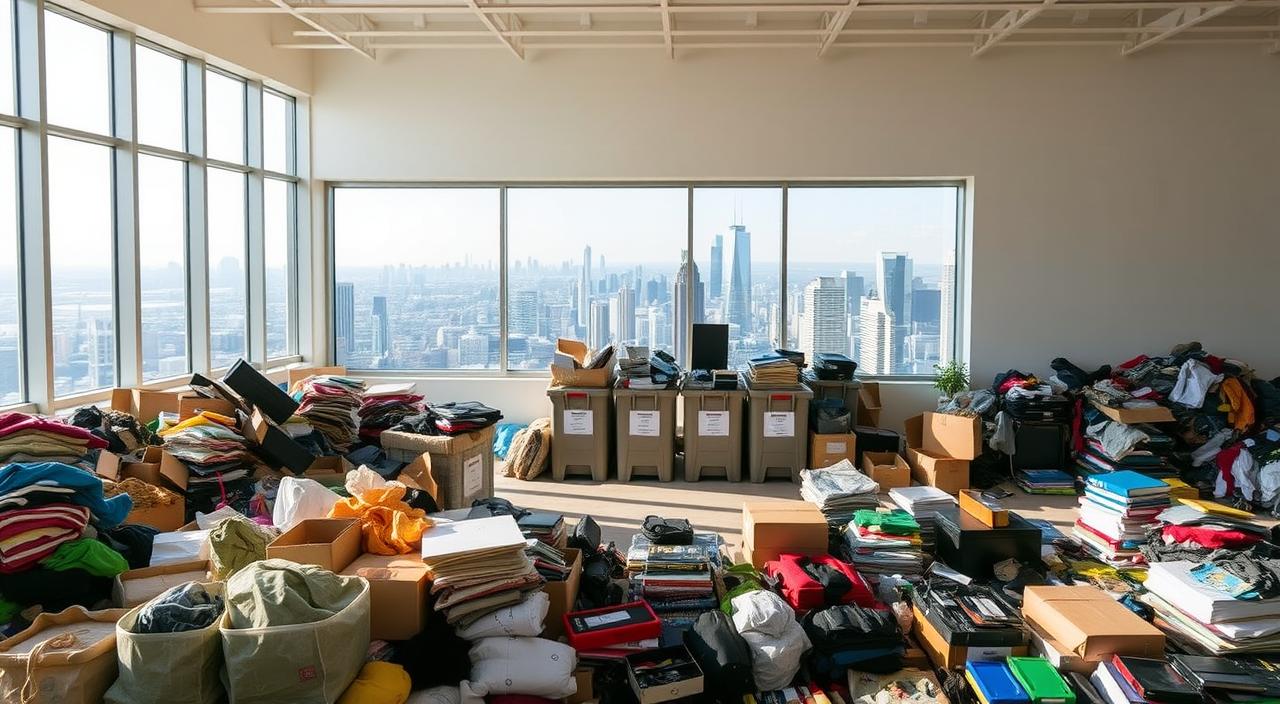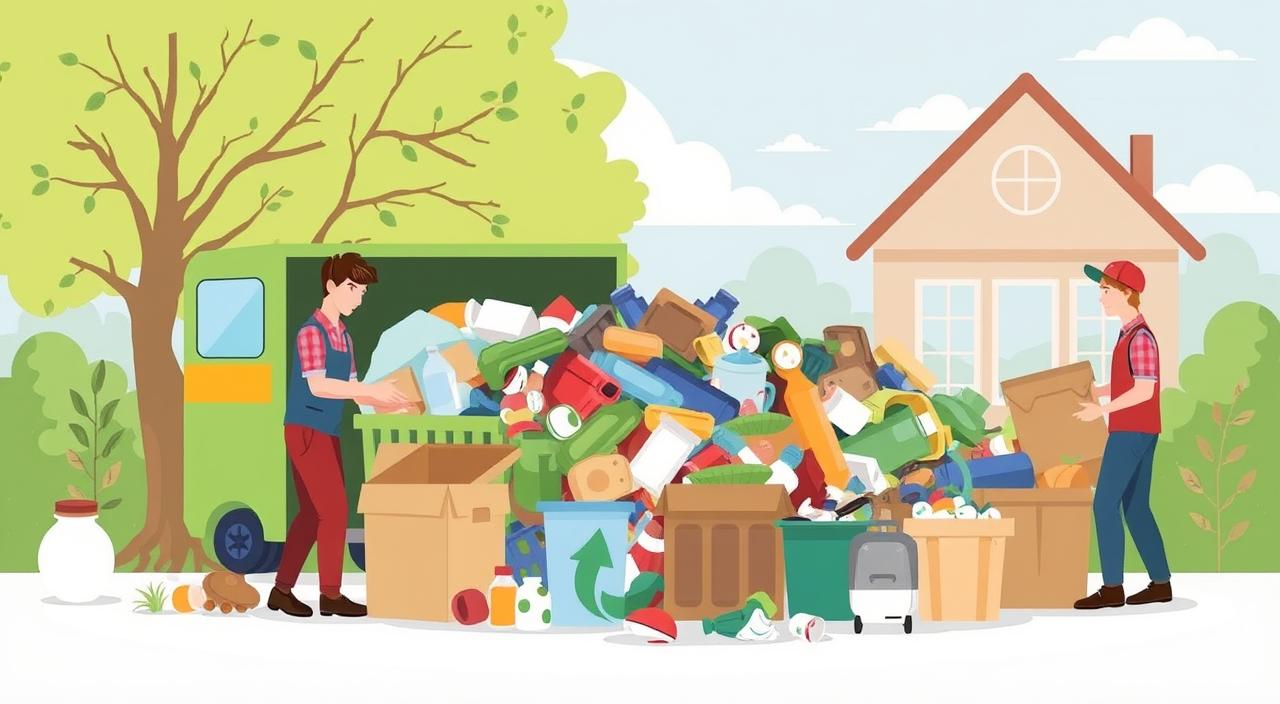
The UK is preparing for a greener future with the introduction of new recycling regulations starting March 31, 2025. These changes will significantly impact how we handle home and business cleanouts, making it crucial to understand the new expectations and how to comply effectively.
What Are the March 2025 Recycling Rules?

The UK government is introducing these regulations to reduce waste and improve recycling rates. The focus will shift from landfill disposal to more sustainable waste management practices, affecting both individuals and companies involved in clearance services.
Key Objectives:
- Cut down on landfill waste
- Boost nationwide recycling efforts
- Encourage environmental responsibility
- Hold producers accountable for packaging waste
Major Changes in Waste Management
1. Extended Producer Responsibility Framework
Manufacturers will now bear responsibility for the disposal or recycling of their product packaging, creating an incentive to use sustainable materials.
2. Mandatory Material Separation
All households and businesses must separate their waste more rigorously, which will enhance recycling efficiency.
Implementation Timeline
A phased approach will roll out across the UK:
- Stage 1: Awareness campaigns
- Stage 2: Voluntary compliance
- Stage 3: Enforcement and penalties for non-compliance
What This Means for Property Clear-Outs

The recycling rules will significantly reshape how house clearance in handled across the UK.
Key Adaptations for Clearance Services:
- Environmental Impact Assessments to review and reduce ecological impact
- Legal Documentation including monthly disposal logs, quarterly recycling reports, and annual compliance certificates
- Mandatory Waste Transfer Notes detailing all aspects of waste movement
Waste Segregation Categories
| Material Category | Segregation Requirement | Disposal Method |
|---|---|---|
| Electronics | By type and condition | Safe disposal or recycling |
| Furniture | Reusable vs non-reusable | Reuse or recycle |
| Textiles | By material type | Recycle or repurpose |
How Professionals Are Preparing
Technology & Tools
- Advanced sorting machinery
- Specialised recycling equipment
- Waste-tracking software
Staff Training
Employees will need to learn how to manage waste under the new rules, operate sorting tech, and complete proper documentation.
Pricing Adjustments
| Service | Current Price | Post-2025 Estimate |
|---|---|---|
| Standard Clearance | £200–£500 | £250–£600 |
| Specialised Waste Disposal | £100–£300 | £150–£400 |
| Recycling Services | £50–£150 | £75–£200 |
What Homeowners Should Do

Pre-Sorting Your Waste
Sort items into:
- Recyclables
- Non-recyclables
- Hazardous materials
Documentation to Prepare
| Document Type | Description |
|---|---|
| Waste Transfer Note | Tracks waste type, quantity, and final destination |
| Sorting Certificate | Confirms that your waste has been sorted correctly |
Financial Impacts
Cost Increases
Higher compliance costs may raise service prices.
Potential Savings
- Bulk Recycling Discounts: Lower fees for high volumes of recyclables
- Government Subsidies: Support for compliant companies and households
Regional Implementation Differences
| Region | Unique Approach |
|---|---|
| England | Unified bin systems and clearer guidance |
| Scotland | Landfill reduction programs |
| Wales | Strong community recycling focus |
| Northern Ireland | A hybrid of England & Scotland’s strategies |
What Industry Experts Are Saying
- Small Firms: Concerned about costs and training
- Large Companies: Proactively upgrading technology
- Industry Associations: Offering training and guidance
Comparing 2025 Rules with the Past
The new framework introduces stricter sorting, more paperwork, and higher accountability—a shift from past approaches. Those who adapted early to past regulations have seen the most success, particularly in customer satisfaction and compliance.
Environmental Benefits
- Less landfill use = lower pollution
- More reuse/recycling = resource preservation
- Lower emissions = smaller carbon footprint
Challenges Ahead
- Mattresses and upholstered furniture are difficult to recycle
- Composite and mixed materials pose sorting challenges
- Rural areas may need additional disposal infrastructure
Final Thoughts: A Greener Future for Clearances
The new regulations are a pivotal step toward a sustainable UK. By adapting now, homeowners and clearance professionals can stay ahead, reduce their environmental impact, and ensure full legal compliance.
Ready to go green with your next property cleanout?
Start preparing now to stay compliant and environmentally responsible in 2025!

 CALL NOW
CALL NOW